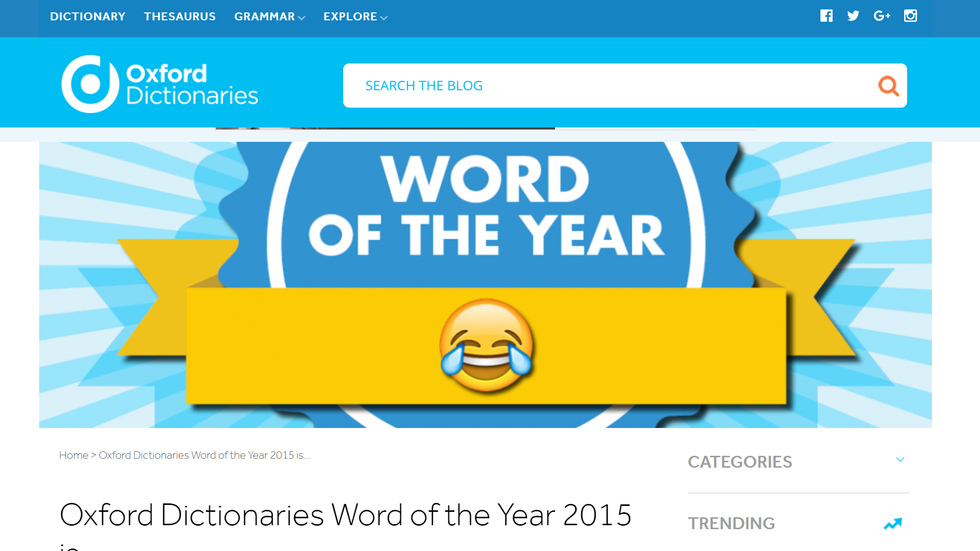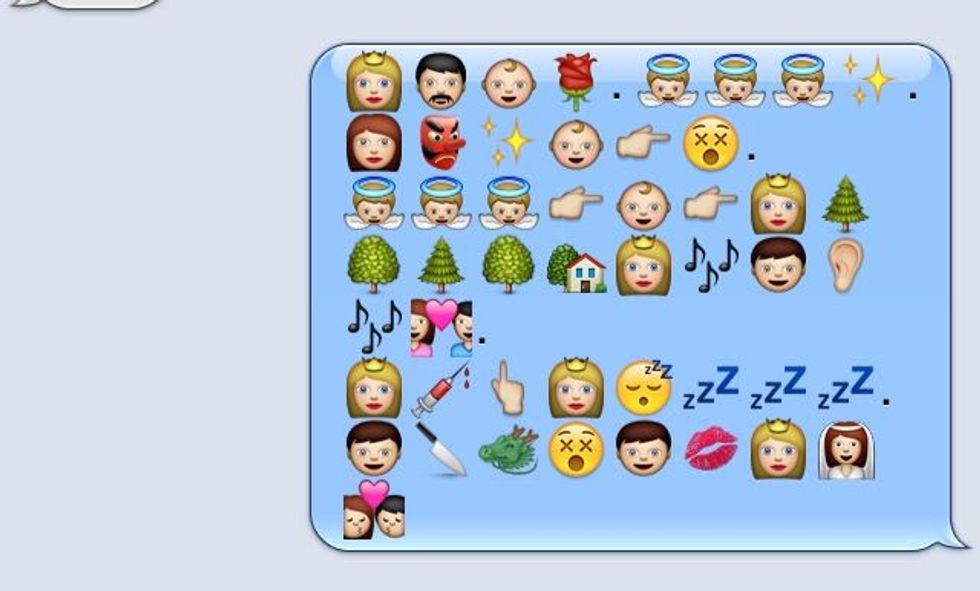Everywhere you go on the internet, you are likely to stumble upon an emoji; appended to the end of a Facebook comment, texts from your loved ones, and even the Oxford English Dictionary.
I'm serious. This actually happened.
While I personally am indifferent on these cute little pictograms, I feel that a lot of people feel that emoji are the death of English and human communication, which seems a little extreme. Here, I hope to defend the emoji, and maybe even make a case for them aiding communication.
"Emoji", Japanese for "picture character", were first invented for Japanese mobile phone networks in 1998. These icon's inclusion in a secret keyboard on the iPhone in 2008 quickly became public, causing the emoji to be included worldwide soon after, becoming the cultural phenomenon they are today.
Personally, I don't believe those who say that using emojis instead of text online will destroy culture or make communication meaningless. I don't think the problem of speaking only in emoji is even as widespread as most people think: I'm a tech-savvy college student, and I still (usually) text in complete sentences. My younger sister in high school doesn't share rebus puzzles with her friends. Heck, my mother is more likely to spam emojis to me(mostly hearts and blowing kisses. She's affectionate that way). Granted you can tell stories through emojis(they apparently translated Moby Dick), but they're often a little hard to understand. Off the top of your head, what is this text message saying?:
...the correct answer is Sleeping Beauty(the Disney version).
Sure, if you know what it's supposed to be, you can make it out, but if you didn't, it's just random gobbledy-gook. Honestly, I don't think emoji itself can be interpreted as a language separate from context; there are only about 1,000 different emoji characters(not counting the racial diversity options, which function as a modifier of existing emoji), while in English around 3,000 unique words are used every day. Even Chinese, which uses characters as well (although they are vastly more complex than emoji, which is a topic for another day) requires knowledge of 3,000 characters to be considered "literate" in the language. Even if that was enough, the same emoji can mean different things to different people: for instance, the various types of smiles they have may read differently(I personally prefer the closed-eye blushing one because it looks the most sincere), or produce items such as eggplants and peaches can take on suggestive meanings if sent to your significant other.
Since we've established that emojis are not going to give most established languages a run for their money in the near future, let's address the other concern that they will make communication shallow and devoid of deep meaning. While a picture is reportedly worth a thousand words, I understand the concern that a 160 by 160 pixel image may not be able to capture the depth of someone's emotional state, even if or even especially if it's several in a row. However, sometimes, their shallowness is useful, saving characters in media that you know to be flippant, like Twitter or silly texts to your friends. And other times, it may even aid communication. As most people know, body language and tone of voice are crucial components of communication, adding nuances to the words being said that are vital to the meaning. None of those things are present in text messages or similar online media, which often leads to miscommunication and confusion(and that's not even taking typos into account, but that's a bit off-topic). Emoji, especially those of faces and hand gestures, help rectify these situations: append a clarifying face or gesture(such as a winky face or tongue-in-cheek for a witticism) to or following your comment to help convey your intentions. While this then is subject to the interpretation problem I mentioned earlier, any sort of nontextual gesture is appreciative. I use this method in texts to my family, the emoji providing a summary of my emotional state, which is often explained by the words preceding or following it.
Emojis are a fairly young invention, only rising to prominence six or seven years ago. It's probably a bit too early to determine whether a bunch of pictograms serve as an existential threat to text and intelligent thought, if they are even capable of doing such a thing. In the meantime, they help capture the nuances that are most often lost in digital communication. That gets a thumbs-up from me.





















